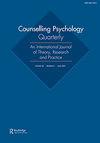Narrative themes of Chinese Canadian intergenerational trauma: offspring perspectives of trauma transmission
IF 1.6
Q3 PSYCHOLOGY, APPLIED
引用次数: 1
Abstract
ABSTRACT In a series of two papers, the narrative themes of Intergenerational Trauma (IGT) from both the perspectives of the parent and offspring generation in the Chinese diaspora in Canada are examined. IGT involves parental traumatization, the intergenerational transmission of trauma, and the impact of trauma on subsequent generations. This study focuses on the narratives of the offspring generation and their construction of how their parents’ traumas shaped their lives. Narratives of IGT were constructed using a collaborative narrative method. The offspring narratives were centred on their experiences growing up in Canada and how those experiences were influenced by the transmission of their parents’ traumas. Narratives were analyzed using Braun and Clarke’s (2006) reflexive thematic analysis. The themes developed from the narratives were as follows: (a) silence and disconnection; (b) saving face and conflicting values; (c) discipline and internalization of insecurities; (d) education as necessity; and (e) preservation and reclamation of heritage. The study illustrates how collective and IGT are understood through the mediated narrative lens of subsequent generations. The role of silence and its construction in these narratives is discussed from a cultural standpoint in relation to dominant trauma discourse. The study has implications for understanding Chinese diasporic IGT through narrative and cultural frameworks and invites trauma and IGT discourses as clinical and research considerations for this population.华裔加拿大人代际创伤的叙事主题:创伤传播的后代视角
摘要在两篇系列论文中,从父母和后代两个角度考察了旅居加拿大华人的代际创伤叙事主题。IGT涉及父母的创伤、创伤的代际传递以及创伤对后代的影响。这项研究的重点是后代的叙述,以及他们对父母的创伤如何塑造他们生活的构建。IGT的叙述采用合作叙述的方法构建。后代的叙述集中在他们在加拿大长大的经历,以及这些经历如何受到父母创伤传播的影响。使用Braun和Clarke(2006)的反身主题分析对叙述进行了分析。从叙述中发展出来的主题如下:(a)沉默和脱节;(b) 面子和价值冲突;(c) 纪律和不安全感的内化;(d) 教育是必要的;以及(e)遗产的保护和开垦。该研究说明了如何通过后代的中介叙事视角来理解集体和IGT。沉默及其建构在这些叙事中的作用是从文化的角度与占主导地位的创伤话语进行讨论的。本研究通过叙事和文化框架对理解中国流散性IGT具有启示意义,并邀请创伤和IGT话语作为该人群的临床和研究考虑因素。
本文章由计算机程序翻译,如有差异,请以英文原文为准。
求助全文
约1分钟内获得全文
求助全文
来源期刊

Counselling Psychology Quarterly
PSYCHOLOGY, APPLIED-
CiteScore
6.20
自引率
6.70%
发文量
30
期刊介绍:
Counselling Psychology Quarterly is an international interdisciplinary journal, reporting on practice, research and theory. The journal is particularly keen to encourage and publish papers which will be of immediate practical relevance to counselling, clinical, occupational, health and medical psychologists throughout the world. Original, independently refereed contributions will be included on practice, research and theory - and especially articles which integrate these three areas - from whatever methodological or theoretical standpoint. The journal will also include international peer review commentaries on major issues.
 求助内容:
求助内容: 应助结果提醒方式:
应助结果提醒方式:


